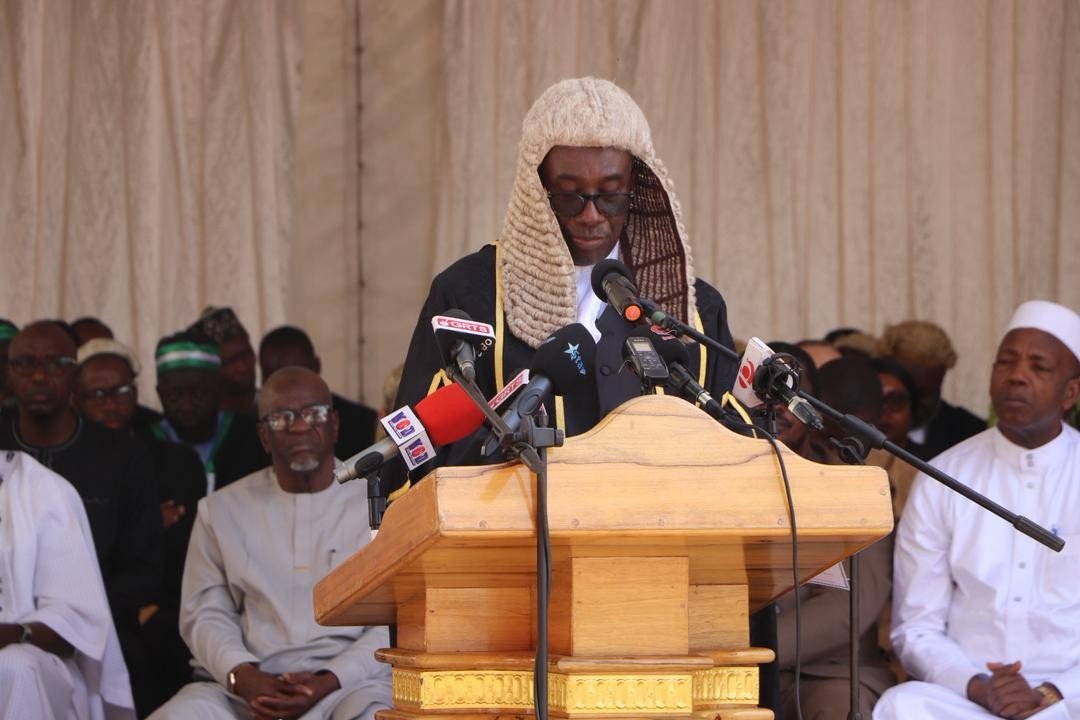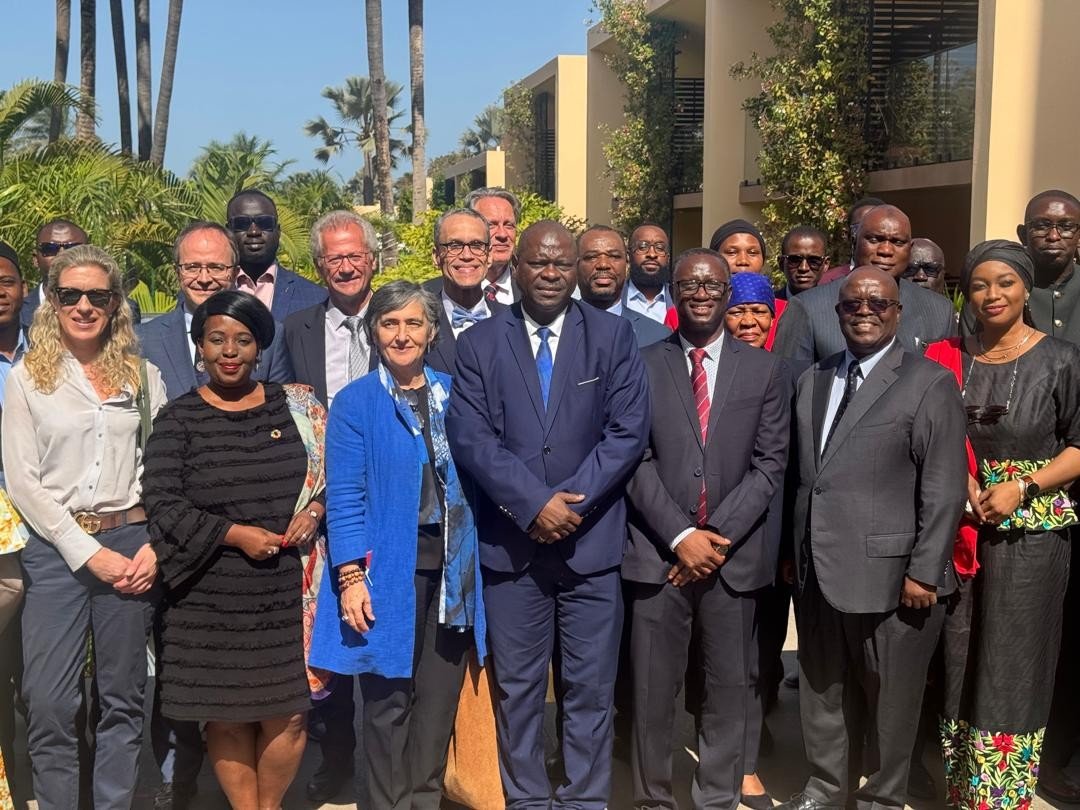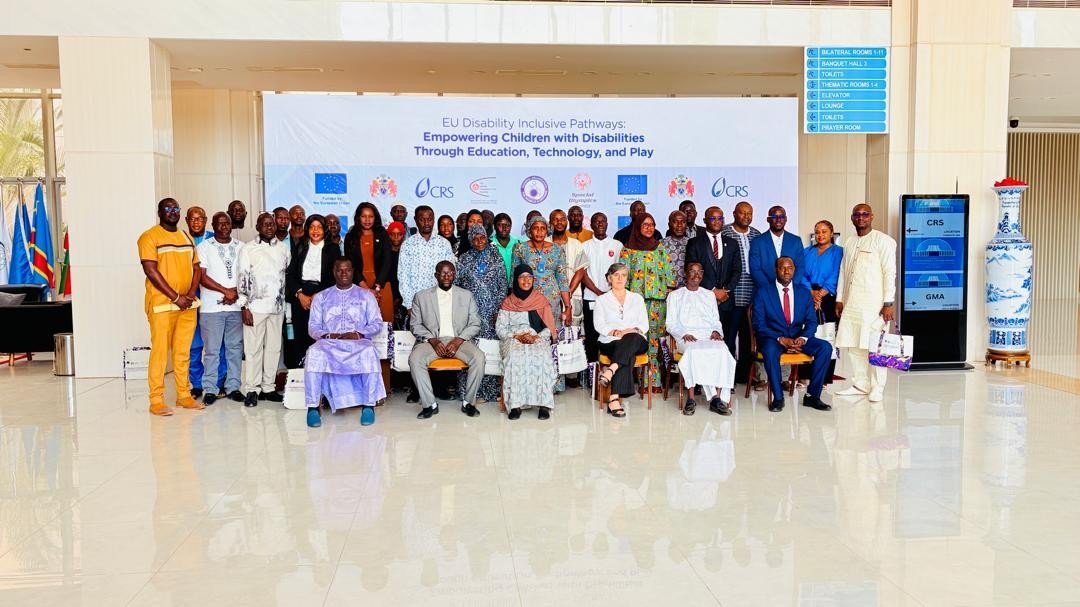The West Africa Network for Peacebuilding (WANEP-The Gambia) has issued an urgent call for restraint amid escalating tensions between the neighboring communities of Gunjur and Berending in the Kombo South District of The Gambia’s West Coast Region.
The decades-long land dispute between Berending and the Darboe, Jammeh, Manjang, and Jatta Kunda clans of Gunjur has resurfaced with heightened tensions following a recent press conference held in Berending and a subsequent response from affected clans in Gunjur, West Coast Region.
At the Berending press conference, Ousman K. Jammeh, Public Relations Officer (PRO) of the Berending Village Development Committee (VDC), asserted that the dispute involves only specific individuals from Gunjur – Darboe Kunda, and not necessarily the entire Gunjur community.
He further claimed that Berending had won three separate court cases regarding the contested land, stating that the land was originally allocated to Berending by the people of Kartong, and dismissing claims of ownership by the Gunjur Darboe Kunda clan.
However, his assertions were swiftly rejected by Lamin Jammeh (Mbakau), who cited multiple legal rulings in favour of both the Jammeh and Darboe Kunda clans at regional courts and the highest judicial level in the country.
He also referenced a recent government-commissioned task force report that recommended demarcating the border in accordance with these rulings.
Lamin Jammeh (Mbakau) was speaking at the press briefing in Gunjur recently. Despite the government task force’s recommendations and embargo placed on the disputed land, he accused Berending of continuing selling the plots in the contested area.
“We are very concerned that a number of the task force’s recommendations are still not implemented despite several follow-up trips to the relevant government institutions,” he explained. “Despite the government’s directive for both parties to refrain from tampering with the disputed land, Berending are actually selling plots from the land. We don’t know how they are getting the documents.”
Mr Jammeh highlighted the slow response from the Ministry of Lands, saying that while officials had previously cited funding constraints, they also had recently promised progress by February. “Yet no action has been taken,” he complained.
However, the situation is further inflamed by Berending’s slogan: “Old border or no border” and threats from Berending to defend the disputed land at any cost. Responding to these threats, Lamin Jammeh warned of potential escalation.
“We are telling them that the land in question belongs to us,” he cautioned, saying: “That is what the government accepts, and that is what the law says. These people attacked us and killed one of our people. We are still distressed by that, and so we will not sit and allow people to deal with our properties any way they want. Let government act to avoid tension. Let them address the smoke before it turns into fire.”
The conflict has a tragic history. In 2021, tensions erupted when Buba Jammeh from Gunjur was shot dead by fugitive Buba Drammeh while working on his land in the disputed area. The killing of Buba led to heightened hostilities and threats of violence between the two communities.
Jammeh urged authorities to enforce the taskforce recommendations, halt illegal land sales, and ensure that Berending adhere to the embargo. Without decisive action, the risk of further violence looms large, threatening not just the communities involved but the broader stability of the region.
However, in contrast to the growing tensions, Alkalo Dembo Darboe of Gunjur has called for calm and restraint. The Alkalo urged all parties to allow the government to handle the matter through legal and administrative channels.
“Let no one take the law into his hands. Let us wait for the government to address our grievances,” he advised.
As both sides dig in their positions, the lack of swift government intervention risks further conflict. While some community leaders from both sides urge patience, others warn that continued inaction from the central authorities could lead to renewed violence. The coming weeks will be crucial in determining whether this dispute will be peacefully resolved or escalated into another tragic confrontation.
In view of this, the West Africa Network for Peacebuilding (WANEP-The Gambia) has issued an urgent call for restraint amid escalating tensions between the neighbouring communities of Gunjur and Berending in the Kombo South District of The Gambia’s West Coast Region.
The organization expressed deep concern over the rising conflict, which stems from a decades-long land dispute, and urged residents particularly the youth to avoid actions or statements that could lead to violence.
The longstanding disagreement, dating back to the 1980s, pits the Sanyang Kunda family of Berending against the Jammeh Kunda, Darboe Kunda, and other clans of Gunjur.
The dispute has periodically erupted into violence, including a fatal clash seven years ago. Tensions flared anew recently after the Ministry of Lands, Local Government and Religious Affairs announced plans to demarcate a boundary between the two communities a proposal originally recommended by a government task force but never implemented. In response, both sides held rival press conferences to stake their claims, further stoking the conflict.
WANEP-The Gambia emphasises that aggression is not the answer. “We believe tension and violence are never the solution,” the organization states. “Instead, we must work together to find peaceful and constructive ways to address our differences.” The group has appealed to the government, civil society, local leaders, and international partners to support efforts to foster dialogue and secure lasting peace.
As part of its ongoing peacebuilding mission, WANEP-The Gambia has already taken steps to ease tensions. Under its Research and Action for Peace (REcAP) Project, funded by the European Union, the organization held Community Dialogue Sessions and Alternative Dispute Resolution Trainings in Berending (June 22 – 24, 2024) and Gunjur (July 12 – 14, 2024). These initiatives aimed to build trust and create platforms for constructive engagement between the communities.
Looking ahead, WANEP-The Gambia outlined a multi-pronged approach to resolve the conflict, including shuttle diplomacy with community leaders, stakeholder mapping, legal research into land ownership, in-depth consultations, and a structured dialogue and mediation process. The organization stressed its commitment to creating “a safe and respectful environment where all voices can be heard”.
WANEP also calls on the Gambian government to act swiftly and transparently to implement the task force’s recommendations, particularly the proposed boundary demarcation. “We are confident that through collective effort and a commitment to non-violence, we can overcome our differences and build a brighter future for Gunjur and Berending,” the statement concludes.
The organization’s plea comes as both communities brace for potential unrest, with WANEP and its partners standing ready to facilitate a peaceful resolution to one of The Gambia’s most enduring local conflicts.






